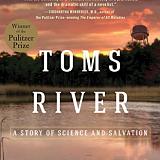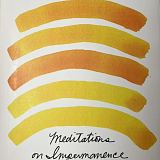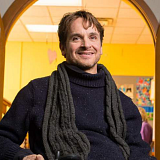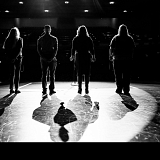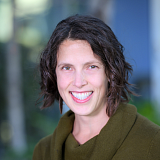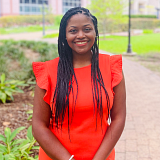Center for Health Ethics, Arts, & Humanities
NEWSLETTER
WINTER | 2023-24 | 02
CENTER DIRECTOR'S MESSAGE
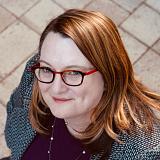
Gretchen Case, PhD, MA
As we did in the last Winter issue of this newsletter, we are happy to highlight the work of one of our longstanding faculty members on the Center’s Council of Directors. Margaret “Peggy” Battin has been part of the medical ethics and humanities group at the U since its very beginning. We asked Dr. Battin to share some insights to what has kept her inspired over a career that has led to her being named a “Mother of Bioethics.”
COUNCIL OF DIRECTORS
SPOTLIGHT
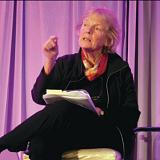
MARGARET BATTIN
"Peggy"
I’ve always loved to write. Indeed, when I was doing a PhD in Philosophy many years ago—this was at the then brand-new campus of the University of California at Irvine—I went to the Dean of Humanities, saying that I’d been doing a fair amount of fiction writing and could I do an MFA in Fiction Writing concurrently with the Philosophy PhD—he thought for a moment, said, well if you do all the requirements for both programs, why not?-- it took an extra year; but the lessons of that dual track remain with me, studying philosophy and fiction writing at the same time.
For example, it’s from Plato that I’ve developed a love of thought experiments. Plato has this wonderfully capacious ability to think about alternative social arrangements, something I still love to do. It’s evident in many of the papers and books I’ve done, even in the book on global-scale reproductive issues I’m bringing out now. There’s a sense in which this is straight out of Plato, to think about how the world could be different (and better) with adroit changes in social arrangements. In Plato’s case, it’s about things like prohibiting the rulers from having silver or gold; in my case, it’s about imagining what the world would be like if all pregnancy were opt-in, thanks to various forms of long-acting reversible contraception entirely under the personal control of the user, both female and male, rather than 45% unintended pregnancy rate as is now the case in the US and, at varying rates, around the globe.
But it’s from Aristotle that I’ve learned about engaging ways of writing, particularly from his account in the Poetics of the structure of Greek tragedy. His advice is elaborate and complex, but from it I take the most basic plot-shaping advice. Don’t start with extended amounts of background, I’ve learned, though that’s common in contemporary pedantic academics; start with the problem. Then fill in whatever background is really necessary while you build the problem to a crisis, and then—this is your job as a philosopher—show how to resolve the problem, that’s the denouement. This is how to involve the modern academic reader, beyond the ancient Greek theatergoer, in not just watching the problem unfold, but working to resolve the problem itself,
Of course, using these strategies hasn’t been possible in all twenty or so of the books, and dozens of papers, I’ve written over my forty years or so in academia. Some are joint-authored, joint-edited, or are collections: for many, for whatever reasons, I can’t really make use of the lessons I’ve learned from Plato and Aristotle. But in the solo-authored work you’ll see some traces of these ancient philosophers’ legacy, a real delight in both thought-experiments and at the same time in problem-solving. I write in a lot of areas of applied ethics--on bioethics itself, on various areas of professional ethics, on religion as seen through the lens of professional ethics, on drugs—prescription, over the counter, common-use, and street, party, and illegal drugs—including a Plato-style thought experiment about how to make things better. I’ve used a thought experiment in thinking about transmissible infectious disease in a big volume written together with Division of Medical Ethics colleagues Leslie Francis, Jay Jacobson MD, and also Charles Smith MD, The Patient as Victim and Vector. I’ve written buckets on end-of-life issues, including suicide, euthanasia, disability issues, and medical aid in dying, including a rather wild thought-experiment paper with colleague Brent Kious, MD, on approaches to Alzheimer dementia.
And that book that’s a huge thought experiment on global-scale reproductive issues? It’s called Sex and the Planet. What Opt-In Reproduction Could Do for the Globe, and will be appearing May 28, 2023, from MIT Press.
In short, I’ve always loved to write. I think this is the best possible life, at least for me—to be able to think, talk, discuss and write, and especially to be able to do so about whatever issues you think are important and deeply compelling. I especially love doing so when you can use a thought experiment as a way of resolving really difficult social and moral problems, all in the interests of making the world a better, ethically seen, a better place.
LITERATURE & HEALTHCARE DISCUSSION GROUP
This informal group is facilitated by expert faculty and meets monthly to discuss books and other texts that address health and healthcare.
2nd Wednesdays, 6-7:30pm
1.5 credits CME
details
ETHICS EXPLORED DISCUSSION SERIES
Informal, multidisciplinary discussions about current issues in healthcare ethics
1.5 credits CME
details
Disability & Healthcare
EVERYONE
2024 BOOK LIST
Literature & Healthcare Discussion Group
STUDENTS
YOUR VOICE COUNTS!
enter to win 1 of 6 - $25 Amazon giftcards
STUDENTS
MEDICAL STUDENT AWARD
Call for Papers!
FACULTY/STAFF
BECOME AN AFFILIATE
Collaborate with us!
Utah Center for Excellence in ELSI Research
SPOTLIGHT
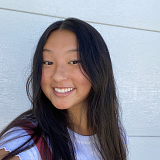
JACQUELINE PARK
"Jacque"
1. Tell us a little about yourself, including your current academic interests and goals.
My name is Jacqueline Park, but most people call me Jacque. I’m in my third year at the University of Utah in their Honors College, studying Computer Science with a minor in Psychology. I’m hoping to go into medical research, particularly in the field of pediatric gastroenterology, as it’s an area near and dear to my heart. Outside of school, I enjoy being outdoors, hanging out with my friends, and trying new things.
2. Your research with Dr. Kilbride explores direct-to-consumer genetic testing. What have you found interesting about this topic?
I’d heard of larger direct-to-consumer genetic testing companies, like 23AndMe, but had never really thought about what this form of testing entails. It’s been interesting to read, and hear, about the whole testing process as well as how results are presented to the participant. I’ve also really enjoyed hearing the participant’s perspective, such as their reasoning behind taking the test as well as their reactions to their results.
3. This is the second year that you have been a part of Dr. Kilbride’s research team. You’ve clearly contributed to the success of her grant. How have you been involved in the project? How do you think the skills you’ve developed will be relevant or beneficial in your future pursuits (e.g., grad school, professional career, etc.)?
For the most part, I’ve been helping with the management of participants, including verifying results, handling payments, and keeping Dr. Kilbride updated on progress. We’ve just started the qualitative portion of the study now, which means I’ve begun conducting interviews with various participants of the study. As I’m hoping to pursue the field of research in my future, it’s been super exciting to see the behind-the-scenes of a study. Being a part of this team has also re-emphasized the importance of communication and organization; handling the data and communications with a hundred participants requires you to be organized and prepared, which I think is always an important skill to continue developing.
4. What do you enjoy most about being a member of the UCEER community?
I think my favorite part about being a part of the UCEER community is getting to meet all the awesome individuals in the program. It’s super interesting to hear about the different advancements and findings people have made!
CALENDAR OF EVENTS
NOVEMBER
29th, Wednesday
5:30-7pm
ETHICS EXPLORED - DISABILITY IN HEALTHCARE (hybrid)
GRETCHEN CASE, PhD, MA
"Living with Disabilities in Rural Utah"
In-person: EHSEB 2600
Zoom link
Passcode: email for code
CME: 333019
DECEMBER
13th, Wednesday
6-7:30pm
LITERATURE & HEALTHCARE DISCUSSION GROUP (virtual)
Book: Toms River
by Dan Fagin
Facilitator: Gretchen Case, PhD, MA
Zoom link
Passcode: email for code
CME: 347056
JANUARY
10th, Wednesday
6-7:30pm
LITERATURE & HEALTHCARE DISCUSSION GROUP (virtual)
Book: A Life in Light: Meditations on Impermanence
by Mary Pipher
Facilitator: Susan Sample, PhD, MFA
Zoom link
Passcode: email for code
CME: 10056
24th, Wednesday
Noon-1pm
ETHICS EXPLORED | Genetics Hot Topics - DISABILITY IN HEALTHCARE (virtual)
MIKE REMBIS, PhD
University at Buffalo
Zoom link
Passcode: email for code
CME: 24019
FACULTY NEWS
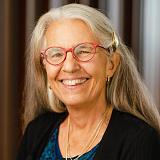
Leslie Francis
Leslie will be speaking at the 2023 PRIM&R Annual Conference in DC in December about "Supported Decision-Making: From the Law to the Bedside."
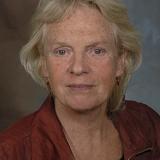
Peggy Battin
Peggy and Brent Kious are running a workshop at the Brocher Foundation in Hermance, Switzerland in December regarding the ethics of suffering in persons with diminished agency.

Gretchen Case
Gretchen co-presented a workshop titled "'It must be nearly finished…' Samuel Beckett’s Endgame as a lens for examining illness, caregiving, and bioethics" in October at the annual meeting of the American Society of Bioethics and Humanities, where she also completed her service as a member of the Board of Directors. As well, she was a co-author on the article "Taking a Systems Approach to Promote Post-Traumatic Growth: A Position Paper" published in the journal Health Systems.
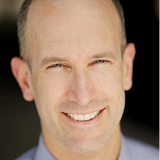
Brent Kious
Brent has published several articles recently, including:
- Medical Assistance in Dying in Neurology
- Does It Matter Whether a Psychiatric Intervention Is “Palliative”?
- What Do Psychiatrists Think About Caring for Patients Who Have Extremely Treatment-Refractory Illness?
- A Focus Group Study of the Views of Persons with a History of Psychiatric Illness about Psychiatric Medical Aid in Dying
